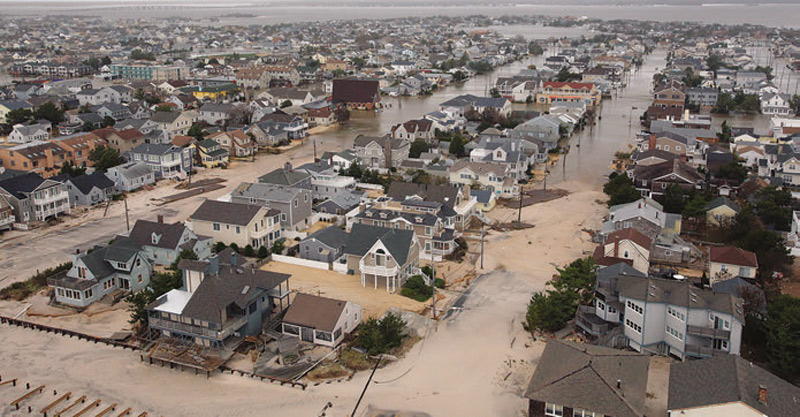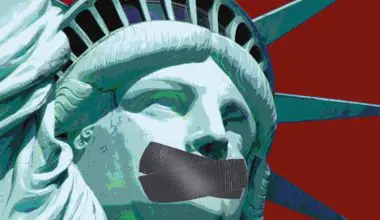THE philosopher Hegel observed with brilliant cynicism, “The only thing we learn from history is that we learn nothing from history.”
I can really understand why we don’t learn from ancient history. Take the Romans of empire days. You have to look closely to see the dreadful things we have in common. To the average kid with the average government education, those guys barely had indoor plumbing and they appointed a horse to their legislature. We have smartphones and elect horse’s asses. What lessons could old dudes in togas possibly teach us?
I can even understand why most of us don’t learn from something as recent as the American Revolution. It came out okay (so we’re taught). Our side won. All we have to do now is enjoy its blessings.
But not learning from a monstrous catastrophe that happened just seven years ago? How dumb do we have to be to miss a lesson like that?
Yet miss it millions did.

When Superstorm Sandy slammed the Atlantic coast last fall, residents of New York and the New Jersey coast had been warned for a week that it was on its way. Warned that it was unprecedented in size and power. Warned that their lives could be in danger and that the civilized systems they relied on could be shut down.
Just seven years earlier, they had watched scenes of horror as Hurricane Katrina swept the Gulf Coast. They’d seen starving, parched people awaiting rescue in the Superdome, seen some dying while waiting for help.
They’d watched and listened as authorities not only failed to help, but walked off the job (and in one notorious case, even murdered refugees). They’d watched as Mayor Ray Nagin bumbled the disaster, causing who knows how many deaths. They’d seen FEMA come in too late and do too little for people in need. How could they forget that? FEMA’s response after Katrina was a national disgrace.
If the horror of Katrina taught us anything, it was this: Prepare to take care of yourself, your family and your neighbors. Because when things get really bad, you’re going to have to go it alone. Maybe for weeks. And if help does arrive, you may not like the form it takes.
But what did too many citizens of New York and New Jersey do as Sandy barreled toward them?
I don’t know. I only know what too many did afterward. They desperately waited for government help. They complained bitterly about such predictable post-storm phenomena as power outages and the inability to get water out of the taps of high-rise apartment buildings. And many of those people eventually discovered that the “help” they got was … a wake-up call.
Some were better prepared, of course. I have friends who rode out the storm easily, thanks to their preps and precautions. One friend on the periphery of the disaster reported that even his beer supplies held up quite well, thank you. And there’s no question that local government officials in Sandy’s path handled the situation vastly better than their New Orleans counterparts handled Katrina.
Still, people suffered—not only from the storm, but from their unwillingness to take responsibility for their own lives. People knew Sandy was coming and that it was likely to be a monster. Even urban apartment dwellers had the opportunity to stock up on food, fill containers with water, check their flashlight batteries, and take other steps to protect themselves and their families.
We’re living in an era when infrastructure is so fragile that it can take utility companies two weeks to restore power in an urban area. Twenty years ago, that long an outage would probably only have happened to rural—and therefore less important—customers.
Worse, NBC News reported that a full month after Sandy, 800 apartment buildings in New York were still without heat and more than 500 without power, due to landlords’ failure to repair damage.
Now, I grant you that if you live in an apartment building, providing your own heat and power can be difficult when utility companies or building managers fail to do it. That could require money, technology and/or forethought beyond the means of most people. But to be caught absolutely stunned and helpless, without food, water or backup plans for evacuation when you know an unprecedented storm is coming at you is inexcusable. It’s the work of people who either think government will always be there to help them or who don’t think at all.
Fortunately for the least prepared victims of Sandy, government agencies, the Red Cross, and even Occupy Wall Street (which morphed into Occupy Sandy Recovery and won widespread praise) did arrive to help.
There was plenty of spontaneous, informal help too. In hard-hit Staten Island, residents organized supply chains to bring necessities in from out of state. Some areas in Manhattan were severely hit while, just blocks away, life was normal.
Those with power, food and water reached out to help those who had none. Even in the blackout zone, people pitched in to help each other—as they nearly always do in disasters. Restaurants opened their doors to provide big community dinners, even when they had to do it by candlelight.
But that brings us back to some of the consequences of relying on “official” help. One of the earliest reports to come out of New York City’s blackout zone was of a city inspector showing up in the dark to shut down one of those community restaurant feeds.
When enterprising New Yorker Yunus Latif collected money and drove 80 miles to buy gas for his neighbors who had none, he was promptly arrested for violating state law by pumping gasoline into Home Depot buckets, which are not approved by the Transportation Department. Then the gas station owner was arrested too. Some “help,” that.
Reports out of FEMA refugee camps ranged from dismal to horrifying. People were moved from moderately comfortable indoor conditions in auditoriums to freezing tents where they sat bundled in blankets and trash bags, watching their own breath cloud the air while snow and slush seeped in. Armed guards surrounded them, forbidding them even to go to the bathroom without presenting ID.
When internees began to complain to the media, suddenly the charging stations set up for their cellphones and laptops “ran out of juice.” Camp officials turned away volunteers who showed up with food and other supplies. One refugee after another used the words “prison” or “concentration camp.”
Jay, one of my New Jersey friends, got through the storm by having excellent preparations and living inland. But the aftermath was a different story. His parents’ home on a barrier island was flooded. Fortunately his parents were away and Jay had had the foresight to remove their valuables as Sandy approached. The bad news was the “help” Jay got. For 16 days, he (along with other island property owners) was not allowed to access the house at all, and thereafter was allowed in only every fourth day for a limited time—as mold and rot quickly made storm damage far worse.
A full month after Sandy, he was still relating such absurdities as having to wait nearly two hours for access because nobody in charge had thought of creating passes for residents. He was repeatedly forced to drive 30 miles out of his way because a bridge he needed to cross was in a different jurisdiction.
Once on the island, he was forbidden to walk 100 yards to check on elderly neighbors because they were also in that other jurisdiction. Residents in that jurisdiction had been allowed to return to their homes full time and were well along in cleaning up storm damage. But just steps away, the “authorities” continued to limit access—and reportedly even threatened to fire on homeowners who tried to approach their own property in boats from the sea.
Rationale for this military-style control ranged from general safety to preventing looting. But in the meantime, mold and rot took over thousands of homes whose owners could have been working hard to salvage them. The cost—the waste—of this kind of “help” will surely end up in the tens of millions of dollars.
You may question why anybody builds houses on the sand. You may question a lot of things about how people and governments handled that or any other disaster. But one thing is unquestionable: you cannot rely on outside help when you’re facing a widespread disaster. Katrina taught this lesson. Why did so many fail to learn from such very recent, and dramatic, history?
Since we opened with a famous quote from one philosopher, let’s close with another: “Those who cannot remember the past are condemned to repeat it.” George Santayana knew all too well what he was talking about.
But we, the readers of S.W.A.T., have better memories, right?



